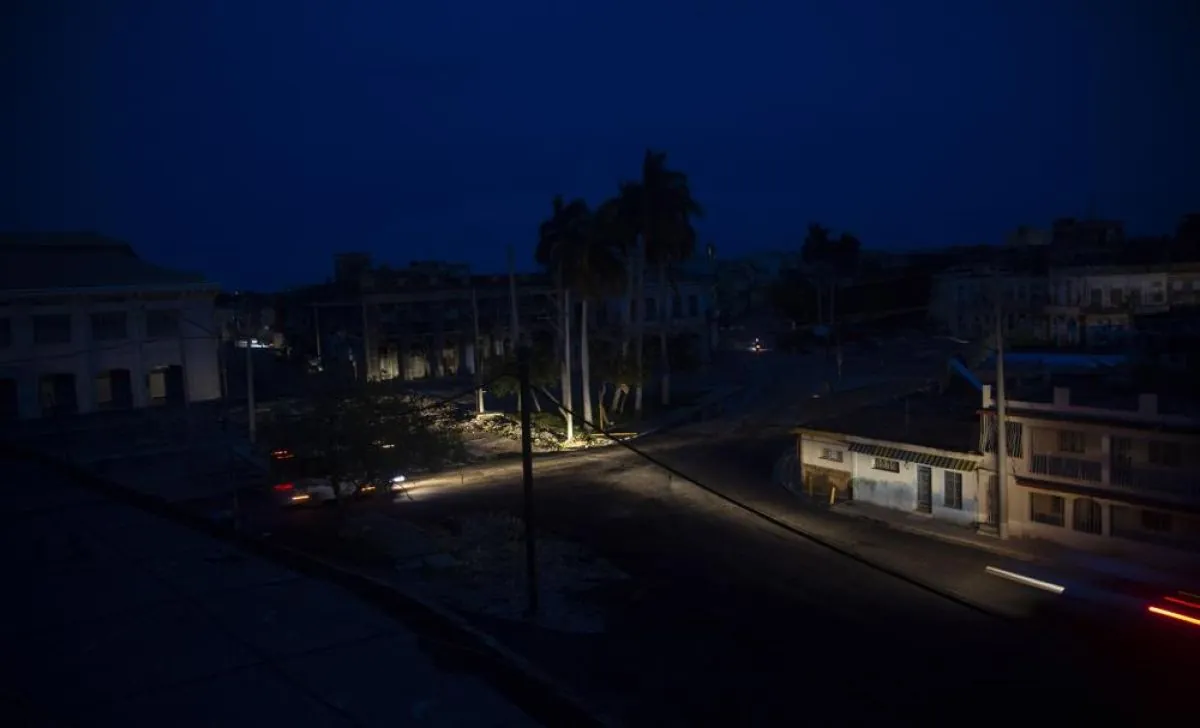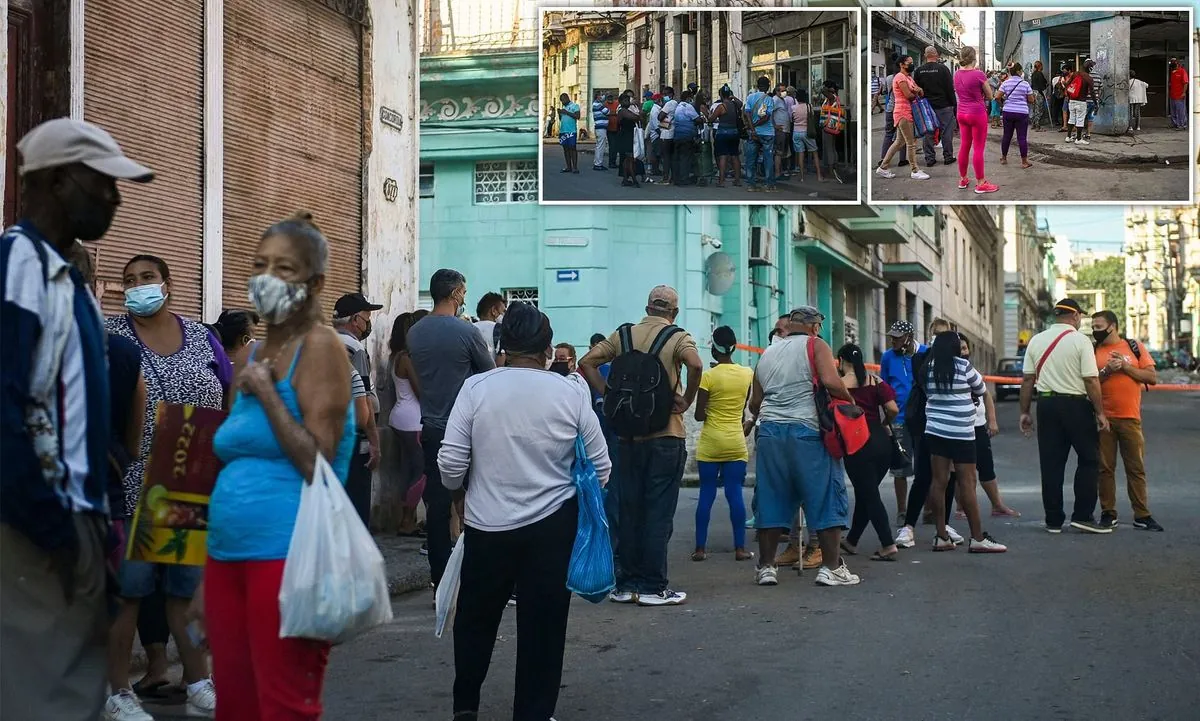Cuba Grapples with Widespread Blackouts Amid Fuel Crisis
Over half of Cuba faced power outages due to fuel shortages and failing infrastructure. The crisis, part of broader economic challenges, has led to a mass exodus from the island nation.

On October 4, 2024, Cuba experienced a severe power crisis, leaving more than half the country in darkness. The Caribbean island nation, known for its rich cultural heritage and high literacy rate of 99.8%, faced significant challenges as fuel shortages and malfunctioning power plants led to widespread blackouts.
The Cuban National Electric Union reported a substantial power deficit of nearly 1,600 megawatts, with demand approaching 3,200 MW during peak evening hours. This shortfall left millions without essential electricity for lighting, fans, and air conditioning as night fell. Cuba's main power source is thermal power plants, accounting for about 95% of electricity generation, but many of these facilities are over 30 years old and prone to breakdowns.
Various regions across the country were affected by the outages. Havana, the capital, experienced intermittent blackouts throughout the day. Pinar del Rio, a key agricultural region famous for its tobacco production used in Cuban cigars, was entirely without power for part of the evening.
By the morning of October 5, 2024, the situation had marginally improved. However, authorities warned that nearly one-third of the island would face further blackouts as peak demand approached later in the day. This ongoing crisis is part of a broader set of economic challenges facing Cuba, which has a population of approximately 11 million people.
The power shortages are not a new phenomenon for Cuba. In the months leading up to October 2024, the country had been experiencing hours-long blackouts as its aging, oil-fired power plants repeatedly failed. The state-controlled economy, burdened by U.S. sanctions in place since 1962, has struggled to purchase fuel on the global market. This situation has been exacerbated by reduced oil imports from Venezuela, a key ally.
Cuba's energy sector has been working on increasing renewable energy sources, including solar and wind power, to diversify its energy mix. However, progress has been slow due to economic constraints and the impact of regular hurricanes on the country's infrastructure.

The power crisis is just one aspect of a more profound economic challenge facing Cuba. The country is experiencing dire shortages of food, fuel, and medicine, leading to rationing and long queues for basic necessities. Despite having a universal healthcare system that is free for all citizens, the lack of medical supplies has strained the country's renowned health services.
These ongoing difficulties have prompted a record-breaking exodus of Cubans from the island, further deepening its woes. The country is experiencing a significant brain drain, with many professionals choosing to leave, impacting various sectors of the economy.
Cuba's unique dual currency system and limited internet access, though improving in recent years, have added to the complexity of its economic challenges. The country has been praised for its disaster preparedness and response systems, but the current crisis is testing these capabilities to their limits.
As Cuba grapples with these multifaceted issues, the government faces the daunting task of addressing immediate power needs while working towards long-term solutions for its energy infrastructure and broader economic stability.


































